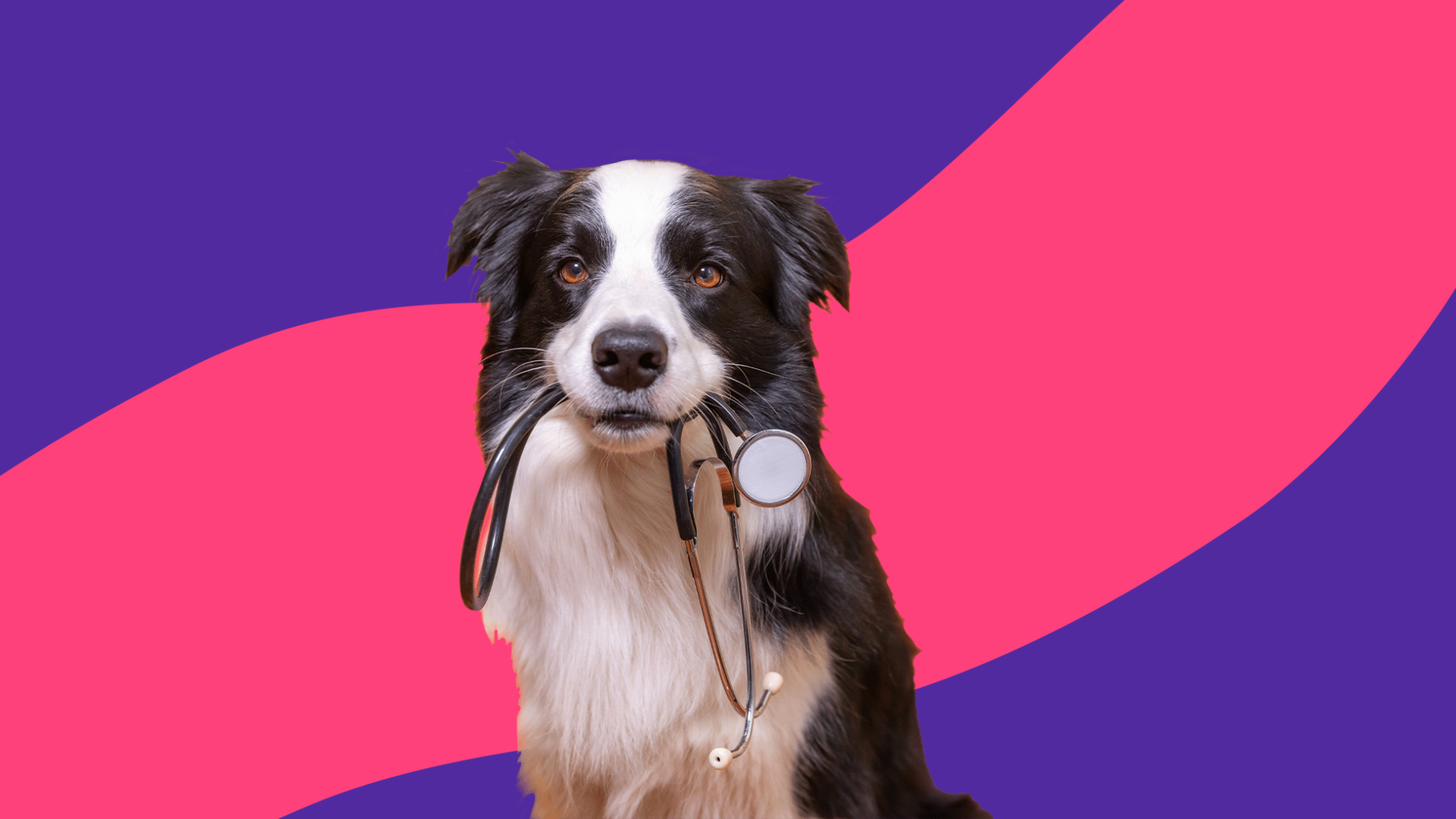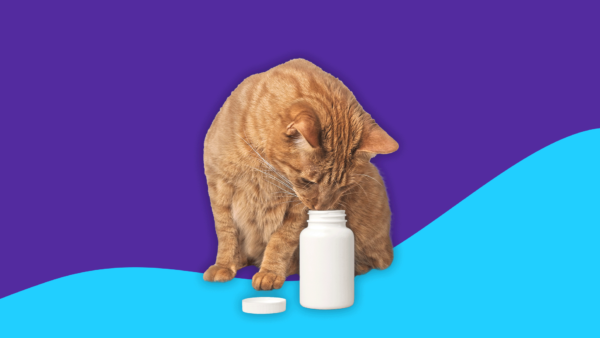One of the worst harbingers of sickness is the sore throat. We all know the dread you feel when you wake up in the morning with a hoarse voice and not being able to swallow without stabbing pain. You might wonder if your dog can also get this cruddy symptom of illness or overuse. The answer is yes. Fortunately, many of the same methods for recovery apply as well, though with some pet-friendly modifications.
Why does a dog get a sore throat?
Dogs get sore throats from the same root causes as humans: strain, viruses, infections, or trauma. Minimizing their risk factors for these root causes will keep your pet healthy overall, but sometimes events happen outside your control.
Oftentimes, your dog can get a sore throat after overuse of their voice. “Many dogs get sore throats when they have been barking excessively,” says Sara Ochoa, DVM, a veterinarian at Senior Tail Waggers. “This can occur after you have company over or if they have been staying at a boarding facility for a few days.” Your dog may be able to be trained to bark less often, which can help their throat health.
Dogs can also get a sore throat because of viruses or infections, the same way humans often do before we get a cold or flu or in conjunction with a bad cough. “Sore throats in dogs often come as part of a viral or bacterial upper respiratory infection that may also cause coughing, sneezing, congestion, and a runny nose,” says Chyrle Bonk, DVM, a veterinarian at Senior Tail Waggers. You may be able to prevent these illnesses by limiting your dog’s exposure to other, strange dogs, such as at the dog park or at boarding facilities.
Another reason for your dog’s sore throat “can be caused by swallowing an abrasive or irritating object,” Dr. Bonk says. Your dog getting into something they shouldn’t can be scary and even life-threatening, so do what you can to keep your home “puppy-proofed.” If you suspect your dog has gotten into something they shouldn’t, make sure to let your veterinarian know as soon as possible. The course of treatment will be different depending on what the substance or object is.
How to tell if a dog has a sore throat
Since your dog can’t tell you that their throat is hurting, you’ll have to look for other signs that something is off with your furry companion. “Many times, if your dog has a sore throat, they will be coughing,” says Dr. Ochoa. Coughing can be caused by a variety of maladies, so you always want to get it checked out by your veterinarian anyway.
If you have a dog that barks, listen for a change in the sound of their bark. A hoarse-ness or a sound like your dog is losing their voice could indicate that your dog has either hurt their throat due to overuse or strain or is getting a virus and has a sore throat that is affecting their bark.
Dr. Ochoa says your dog might not be eating at all if their throat is sore. “When dogs have sore throats, they will often want to eat and drink but will have difficulty or reluctance to swallow when they do,” says Dr. Bonk, so, watch your dog carefully if you notice any major changes in their eating behaviors.
Other signs Dr. Ochoa has seen in her experience include being a bit lethargic, much like how you might feel a bit tired when your throat is sore, especially if it’s been keeping you up at night or keeping you from getting enough food to keep your energy up. Dr. Bonk says drooling and gagging can also be associated with sore throats.
Medications to treat a sore throat in dogs
The reason for your pup’s sore throat will be the main indicator of how to treat it. Trauma to the throat due to overuse or swallowing something will require a potentially different course of action than a virus or infection.
If your dog’s sore throat is caused by an upper respiratory issue, you’ll want to treat that. “Depending on what the cause is, dogs may be prescribed an antibiotic or anti-inflammatory. They may also get a cough suppressant, ” Dr. Bonk says. With a combination of medications, your dog should be able to recover quickly from the sore throat.
Antibiotics given to dogs for sore throats are the same types that you’d be given for your own infections. “Your vet may prescribe an amoxicillin type antibiotic for their sore throat,” Dr. Ochoa explains. There will be many different specific drug types depending on what your vet thinks is the best course of treatment for your pet.
Dr. Ochoa also says that your vet may prescribe anti-inflammatories such as steroids or antihistamines. Benadryl, which is available over the counter, is often given to dogs because the antihistamine can bring down swelling and it is safe for canines.
Your dog might also be given a cough suppressant, much like a liquid or pill medication you’d get from a doctor or over-the-counter for your own cough, since cough is often the cause or an effect of the sore throat.
“Cough suppressants such as dextromethorphan can be given to your dog to help with the cough,” says Dr. Ochoa. Never give your dog something you buy for yourself over-the-counter without getting specific dosage instructions from your veterinarian. Many drugs are not formulated for animals and the dosage by pound can be very different for animals.
Sore throat remedies for dogs
Much like when you’re home sick, comfort care is often the best way to get better. Giving your dog time to rest and recover is a very important part of the process.
You may want to temporarily adjust your pet’s diet. Most dogs with a sore throat will benefit from eating soft food,” Dr. Ochoa says. Ask your veterinarian for recommendations on how to adjust your pet’s current food regimen, but Dr. Bonk says mixing canned dog food with water could make it easier for your pet to swallow.
“You can also give a very small amount of warm [pure] honey to help soothe their throat,” Dr. Ochoa says. “Honey does contain sugar and should not be given to diabetic dogs.”
Another tried and true method that works on both humans and dogs is steam. “You can also take your dog into the bathroom while you shower to relieve congestion,” says Dr. Bonk. Your bath-adverse dog may not like the idea, though. Conversely, you may end up with a friend in your shower.
Usually, with a combination of targeted medications and comfort care, your dog will recover quickly from their sore throat and any pain or hoarseness will only be a temporary inconvenience to their otherwise happy lives as your companion.











